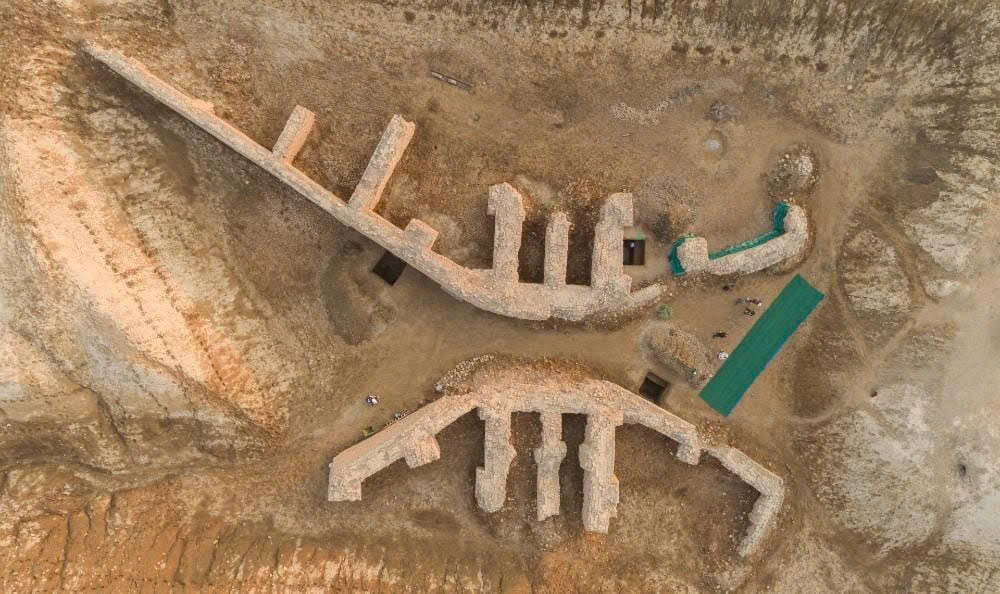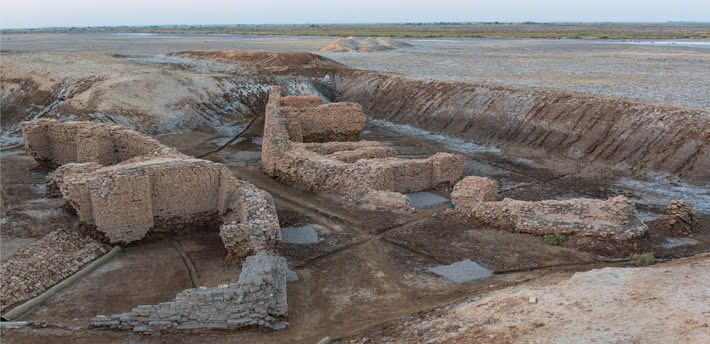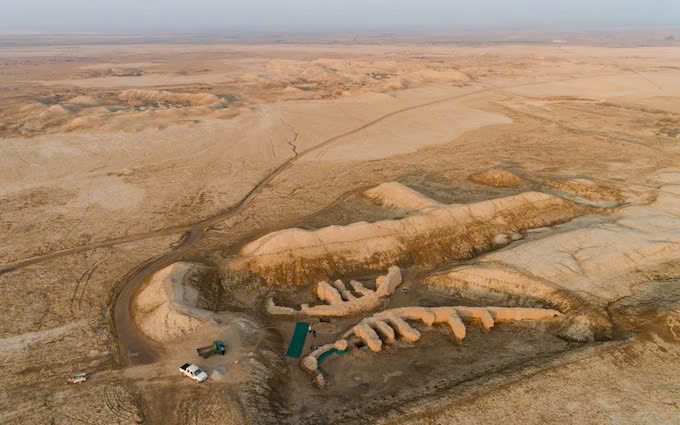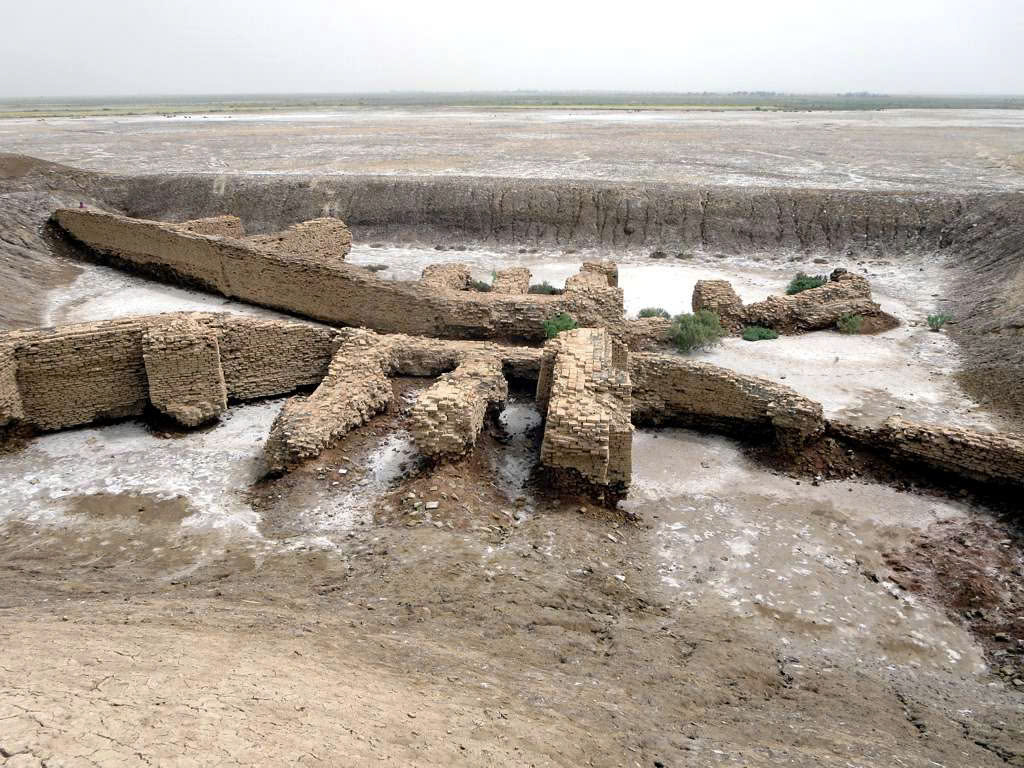The ancient city of Girsu, nestled in modern-day Iraq’s Dhi Qar Governorate, harbors a remarkable testament to Sumerian ingenuity – the Bridge of Girsu. This architectural marvel, previously misidentified as a temple or dam, stands as one of humanity’s oldest bridges, spanning an ancient canal that once served as a lifeline for this Mesopotamian civilization.
Engineering Brilliance in Ancient Mesopotamia

The bridge’s design showcases the Sumerians’ sophisticated understanding of hydraulic engineering. The canal it crossed measured an impressive 100 feet in width but narrowed strategically to just 12 feet at the bridge crossing – a deliberate engineering choice that demonstrates their mastery of water management. This precision wasn’t merely for show; it was crucial for sustaining the agricultural foundation of their society.
A Bridge Between Earth and Heaven

What truly sets the Bridge of Girsu apart is its dual nature as both an infrastructure marvel and a spiritual monument. Inscriptions discovered on its bricks reveal its dedication to Ningirsu, the Sumerian deity of storms and agriculture. Under the reign of Ur-Ningirsu, this bridge became more than a crossing point – it transformed into a physical manifestation of the connection between the mundane and the divine.
Architectural Legacy

The bridge’s survival for over four millennia speaks volumes about Sumerian architectural prowess. Built with carefully selected materials and intricate design considerations, it served as more than a mere crossing point. It became a vital artery for trade, communication, and cultural exchange between communities.
Cultural Significance
Today, the Bridge of Girsu stands as a window into the sophisticated world of ancient Sumer. It reveals a civilization that seamlessly wove together practical necessity with spiritual devotion, creating infrastructure that served both their earthly needs and divine obligations. The structure continues to yield insights into Sumerian daily life, technological capabilities, and their profound relationship with the environment and their gods.

This ancient bridge remains not just a feat of engineering but a bridge across time itself, connecting us to the innovative spirit and deep spirituality of one of humanity’s earliest civilizations. Its ongoing study continues to enrich our understanding of how the Sumerians shaped the foundations of human civilization through their remarkable blend of technical skill and religious devotion.

